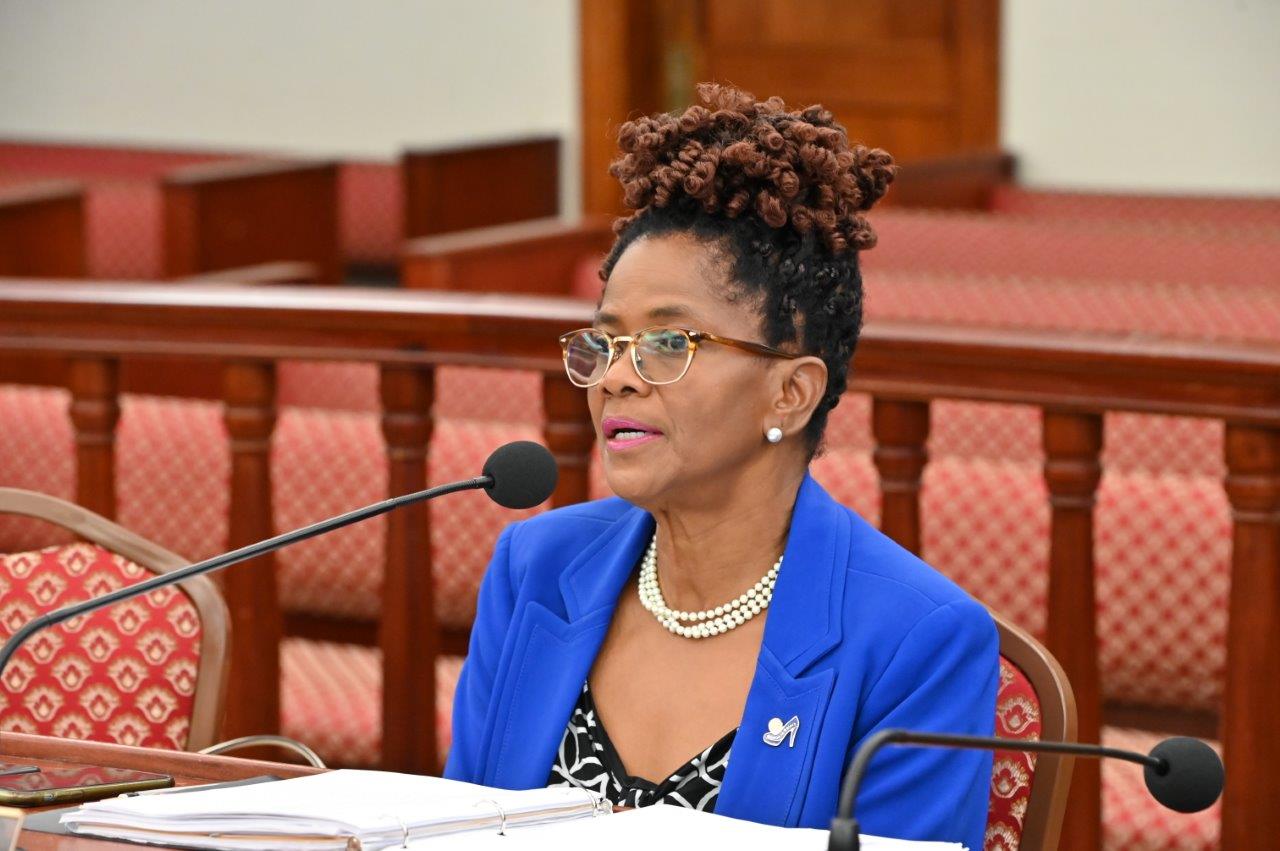
In a tradition going back at least a dozen years, the Virgin Islands Taxicab Commission has asked the Legislature Friday for funding to modernize, digitize, and get off the pen-and-paper system that’s been in place since 1978.
For half of the 21st Century so far, the commission in charge of the territory’s taxi drivers — often called tourism ambassadors as they are the first people many tourists meet — has sought to move to a modern version of data collection, organization, licensing, and online payment platforms.
Vernice Gumbs, executive director of the Taxicab Commission said fully automating internal processes with web-based systems would increase efficiency, effectiveness, responsiveness and enable conducting business remotely, which would cut down office space overhead and associated headaches. A mold issue forced the taxi office closed for months in 2023.
“We would need funding in the amount of $479,486.35 to make this project a reality,” Gumbs said. “Digitizing VITCC will improve collections, allows for a faster filing process, eliminates the risk of sensitive information being leaked, and reduces the chances of documents getting misplaced.”
Gumbs was keeping a tally on pen and paper of how many of the 1,964 medallion owners were actively driving taxis and how many were dormant, she said.
Her comments mirrored those of former Executive Director Judith Wheatley, who, in August 2012, asked for funding to modernize data collection.
“We are seeking to develop a viable automated system so that we may track all automobile for hire medallion owners, automobile for hire operators and registered automobiles for hire throughout the U.S. Virgin Islands,” Wheatley said, asking for email and file-sharing systems.
Sen. Donna Frett-Gregory, chair of the Senate’s Committee on Budget, Appropriations and Finance, said hard data, even if it was collected with pen and paper, was necessary to justify a nearly half-million-dollar request.
“Tourism is what drives the revenues that we have here in the territory,” Frett-Gregory said. “We have been discussing this very vexing issue for a very long time.”
The commission has a long history of dysfunction, the Senate and Gumbs acknowledged, with an undermanned and at times obstructionist board of directors, mold issues in their offices, and unfilled staff positions. With two years on the job, Gumbs was one of the longest-serving executive directors at the commission in recent years.
Frett-Gregory suggested the commission could be layered under the Licensing and Consumer Affairs Department, which already has the processes and equipment in place needed for taxi management.
“We need to give serious considering to moving the taxicab commission and placing it under the Department of Licensing and Consumer Affairs,” she said.
Although the commission is in charge of generating enough revenues to cover its own expenses, it asked for additional funding each year, Frett-Gregory said.
In 2025, Gumbs said their budget was “rock bottom” at $1,555,706.93.
Sen. Diane Capehart asked why the Taxi Commission hadn’t applied for federal grants available, including one with an expiration date in September. Without seeking available funding from deeper pockets in Washington, Capehart said it was difficult to appropriate more money.
“I could not support this because you cannot justify today the questions we have here before us. You have issues with the board, lack of staffing, issues with many things including environmental issues,” she said.
The committee also voted to approve two lease agreements between the government of the Virgin Islands, and Role Enterprises, Inc., and Banco Popular de Puerto Rico. The leases were sent on to the Committee on Rules and Judiciary for further consideration.


